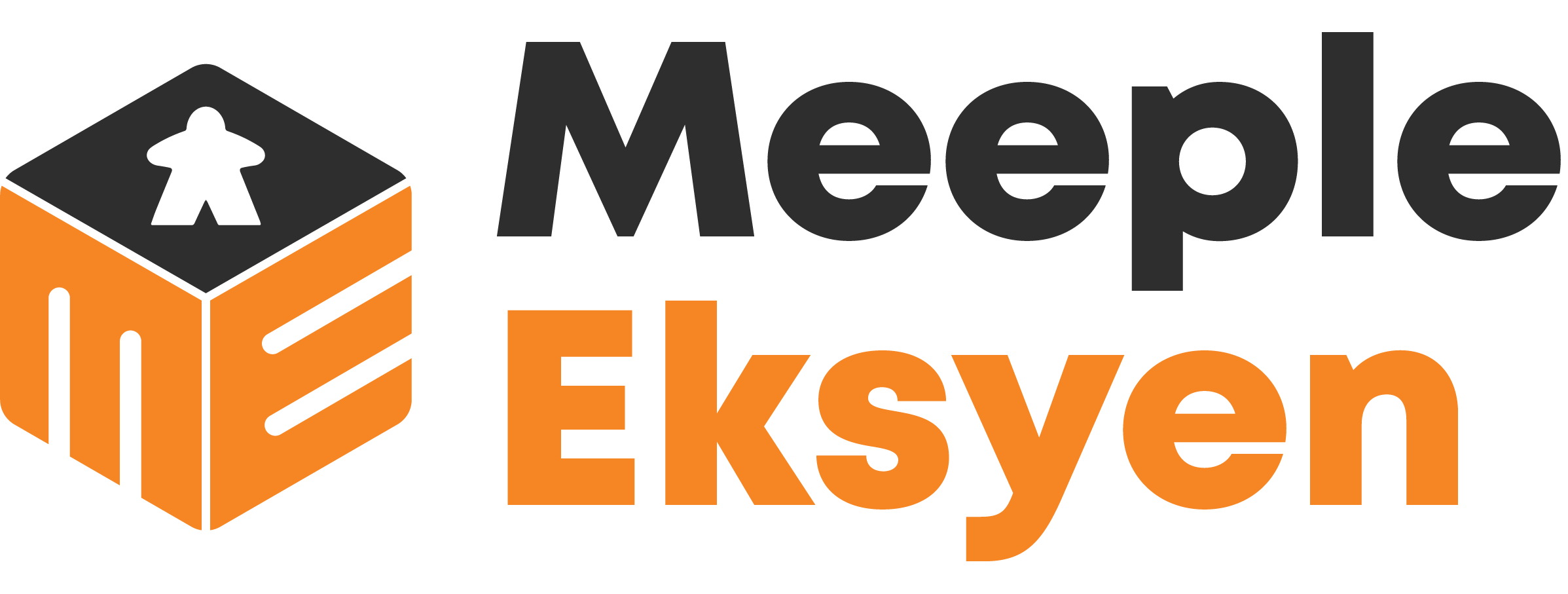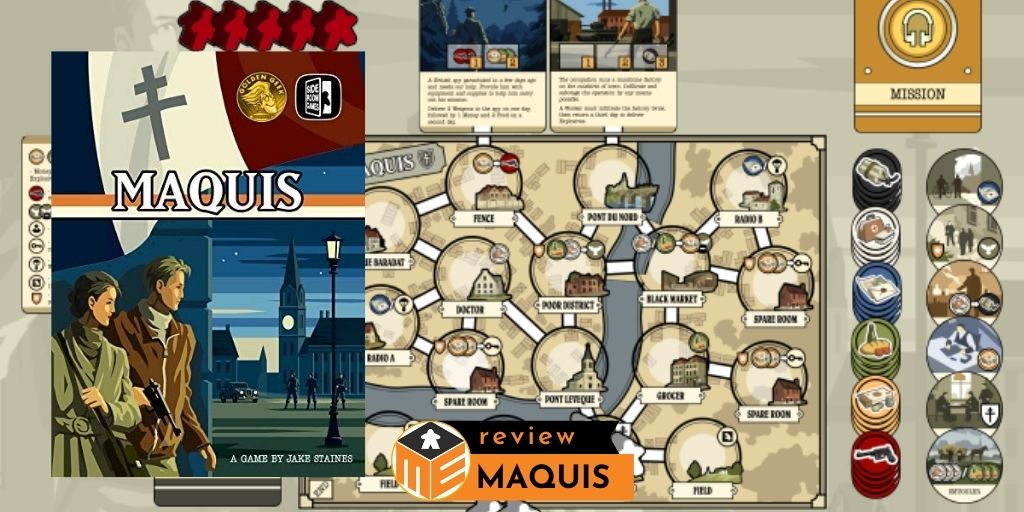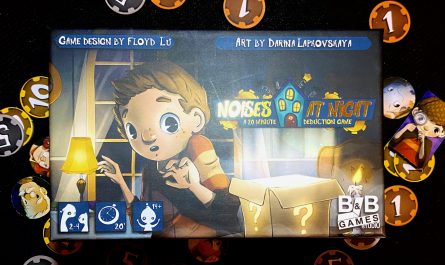It was the 1940s. France was under the government of the Vichy regime, and was collaborating with the Nazis. The men and women who were against them became the now famous French Resistance, of which some of them are referred as “maquises”, which operates mostly in rural French. As the title Maquis suggests, you’ll lead a band of maquises, executing la petite guerre against the Vichy Milice and Nazi soldiers. Hopefully, your effort will help bring the Allies closer to victory in liberating France.
Disclaimer: I casually enjoy euro games and miniature wargames, PnP maker, and a big fan of solo games/variants. This statement will give you an overview of what kind of bias I might have while writing.
For a while now, Maquis has been one of those titles which often get recommended by solo game enthusiasts. It is not surprising, actually. The designer won 2013’s Best Small Games on Board Game Geek’s Solitaire Print and Play Contest. But it’s now even more widely known after the successful Kickstarter campaign by Side Room Games in 2019. This campaign brings the game to retail. And now, the game is still on late pledge in Kickstarter after its 2nd edition campaign. With over 6000 backers, just what makes this game so enjoyable?
For this review, I’ll be using the 1st edition Print and Play available through the Kickstarter campaign page.
FIRST IMPRESSIONS
Further disclaimer: even though I enjoy solo games/variants, I usually err towards solo-only games. I like flexibility with my games — you know, the whole “Love them in private, love them in public” adage.
However, aside from Orchard (also from Side Room Games), Maquis is one of the exceptions where I’ll gladly keep the game in my collection for a long time. My first impression was from the art, and I’d have to say that I’m a fan. Ilya Baranovsky, the artist for Dune, has created a great aesthetic that portrays the grassroot feel of the whole Maquis story. While doing so, he managed to keep the overall visuals clean and tidy. It can be a challenge, especially in worker placement games.
Yes, this is a solo worker placement game. You will spend rounds placing your maquis band members to collect and radio-in resources, and then pick them up. Spending and acquiring resources also impact the citizens’ morale. You will also complete missions, which will be drawn at the start of the game in a combination of twos from the Mission deck. You win the game when you complete both of these missions before the game ends, either due to all your workers getting captured or simply being out of time.
You can watch more in depth rules on how to play Maquis here.
PLAYING AGAINST THE GAME
In Maquis, you will be facing off against the game itself in the form of a Patrol deck. This deck consists of ten cards that will be drawn every time you place a worker. It determines where the milice or soldier will be patrolling. Throughout the game, you need to make sure your workers have a clear path back home to complete most of their actions. Else, they will be captured.
The cards in the Patrol deck itself feature 3 locations in chronological order from top to bottom, of which will tell you where the patrol will go next — choosing the first one available. The patrol will skip places where you already have a worker or where another patrol has already been placed. But, if all the places listed are occupied, the patrol will instead capture any of your workers in the listed locations, determined from top to bottom.
This introduces some sort of card counting mechanics, as you can see the Patrol deck discard pile whenever you want.
The fewer cards left in the Patrol deck, the more likely you can guess where the patrol will go next. If at any point the Patrol deck runs out, reshuffle the discard pile to create a new Patrol deck. Effectively, you’ll go blind once more.
Of course, there are methods to circumvent the standard run of the game. For example, you have the option to shoot the milice that blocks your way back home. However, do note that also comes with grave consequences.
EASE OF SETUP
I think the most crucial part of any solo game is the ease of the setup. It helps streamline both the preparation and refreshing the game after you’ve finished a session, especially due to the loss.
In Maquis, you will lose, like a lot. But due to the ease of setup, playing Maquis is quite enjoyable despite the frequent losses you will encounter. With only a few components to adjust and only the Patrol deck and the Mission deck to shuffle, setting and re-setting up the game feel like a breeze.
Personally, I don’t reshuffle the mission deck when I lose. Thus, I can re-attempt multiple times on certain mission combinations.
As a worker-placement game, the total number of components itself is not enormous. In total, Maquis has approximately 30 cards only in this second edition, which already includes Reference and Tracker cards.
COMPLETING MISSIONS AS A MAQUIS
The missions itself add another layer of complexity to the game. Mission cards also serve as locations placed on top of the board. They show where workers need to go to complete the missions. While doing so, they need to be mindful of the “clear path home” rule.
Another would be how some missions add additional conditions to the overall game. For example, a mission can make one of your landing fields unavailable to receive resource drops.
Another instance is how a certain mission can only be completed between certain round numbers.
Of course, this also brings some problems, as some missions are noticeably harder than the other. Hence, there are certain combinations of missions that are either arduous or end up trivial. Some fans have noted them down, and suggested eliminating said combinations for a more balanced gameplay.
REPLAY VALUE
The new edition also brings new missions and new resource types, which also comes with new action spaces. From the previews, I saw the new Mission cards are relatively bigger, so I expect some new mechanics coming in that boost Maquis’ replay value.
As mentioned before, I intend to keep Maquis in my collection for a long time. I’m always eager to bring it out whenever I have a good 30 minutes to play a game. The combination of missions helps to improve the replay value, and the random nature of the Patrol deck forces you to spend time considering your every move.
FINAL THOUGHTS
Maquis is a great solo game in a small package if you can get past its difficulty. It’s mechanically sound, with proper thematic execution and a rich content that you can spend a lot of time on — and even more now with the new edition due to the additional missions. If you’re like me and on the edge towards solo-only games, I encourage you to give Maquis a try and see if it’ll change your mind.









